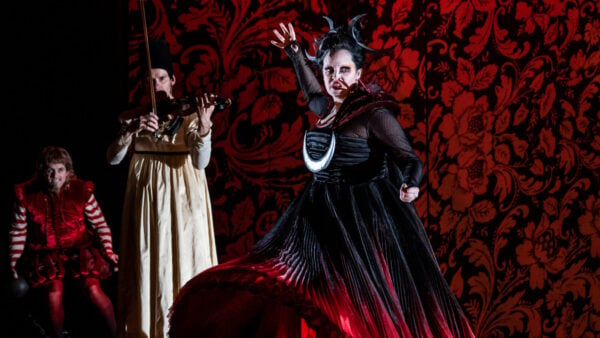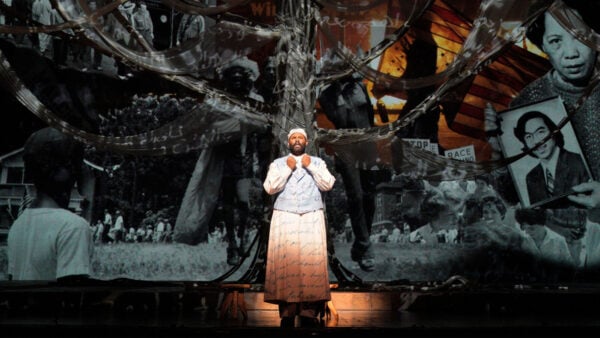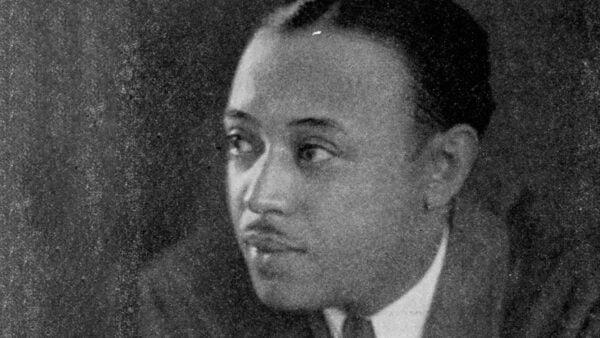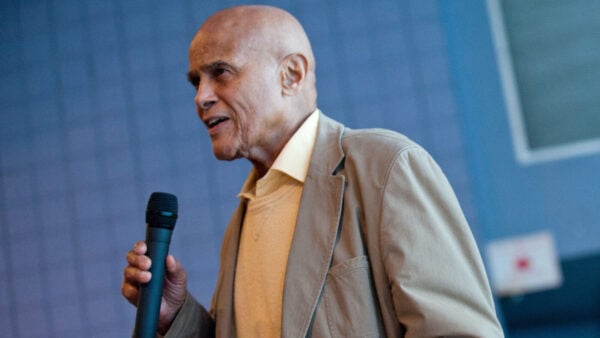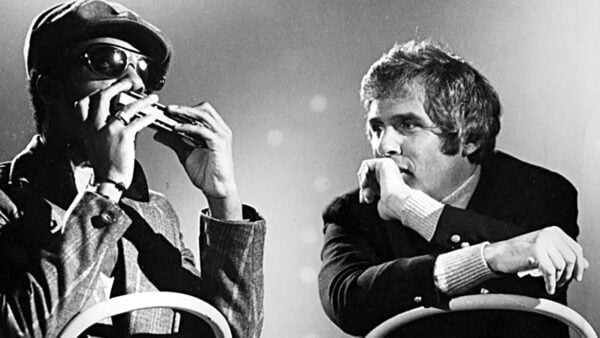At 79 years old, Philip Glass has composed 27 operas. Yet, only a handful have been performed in Chicago, though the composer spent formative years in the Windy City as a student.
Still, Chicago has been home to a couple of important Glass premieres. In 2002, the Goodman Theatre presented the world-premiere of Galileo Galilei, which the theater also commissioned. Two years earlier, his In the Penal Colony had its Chicago premiere at the Court Theatre in a production directed by his then-wife, JoAnne Akalaitis. Court’s production originated at ACT Theater, Seattle, which commissioned the work and presented the world premiere.
This May, In the Penal Colony returns to Chicago for select performances in a presentation by Chicago Fringe Opera, dedicated to performing English-language operas by modern and contemporary composers in site-specific productions.
The opera, based upon the short story by Franz Kafka of the same name, explores the morality of capital punishment. (For the full text of the story, click here.) An unnamed visitor finds himself on an island penal colony. He meets an unnamed officer who executes prisoners using an infernal machine called “the Harrow,” which tattoos the crimes of prisoners on their body for twelve hours, ultimately killing them.
Chicago Fringe Opera stages this unusual opera in an unusual setting, the Lillstreet Arts Center. Stage director George Cederquist said, “It’s a working art studio. As part of our production, we refer to blueprints of the Harrow that the Officer stores from racks which are permanently installed there. The floor is covered with materials suggesting ink or other stains from the machine. The space gives the production a feel that’s raw and gritty without making things uncomfortable for our audiences.”
Even grittier than the space, however, is the score. “There’s no one who can invite you into his world like Philip Glass,” conductor Catherine O’Shaughnessy said. Scored for two singers and string quintet, In the Penal Colony marks the first Chicago Fringe Opera production to realize a composer’s full score. Previous Fringe productions have featured singers with a piano reduction.
Glass’s music presents challenges regardless of the size of the ensemble required to perform. “Normally when you’re working with an orchestra or ensemble, the phrases are clear on the page,” O’Shaughnessy said. “With this piece, you have to read between the lines a bit more. If you’re just looking at the violin part, you see pages and pages of just quarter notes. You can’t tell what the phrase is, or what’s happening dramatically, or even what the harmony is. One day I woke up and his lines started to sound like Puccini to me. I felt the dramatic flow. It all started making sense.”
Though O’Shaughnessy and members of the quintet have the advantage of looking at scores during Glass’s entire 80-minute opera, the singers do not. “I am so glad I’m not a singer trying to learn a Glass opera,” Cederquist said. “If you get off the beat, you are so screwed.” To help the singers remember their music, he explained, “I tried to find clear guideposts in the staging that align with specific points in the music to help them where I can.”
Singers are also faced with the challenge of being up close and personal with their audience. By presenting the opera in the intimate space of the Lillstreet Art Center, they are literally inches from listeners at all times. Not even HD broadcasts can bring you that close to the action.
After a weekend of preview performances, Chicago Fringe Opera opens In the Penal Colony on May 13, 2016, for a run of six performances. For more information, visit Chicago Fringe Opera’s website.


